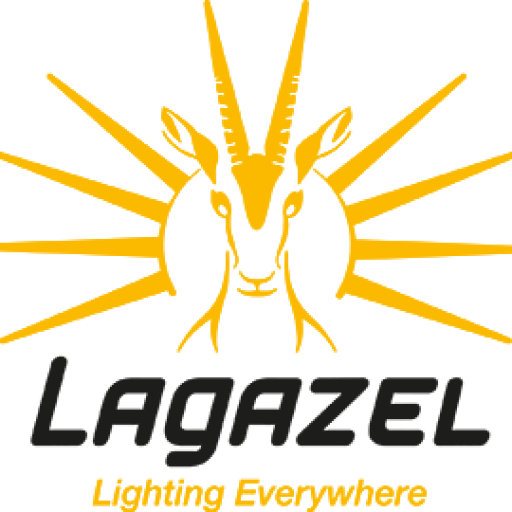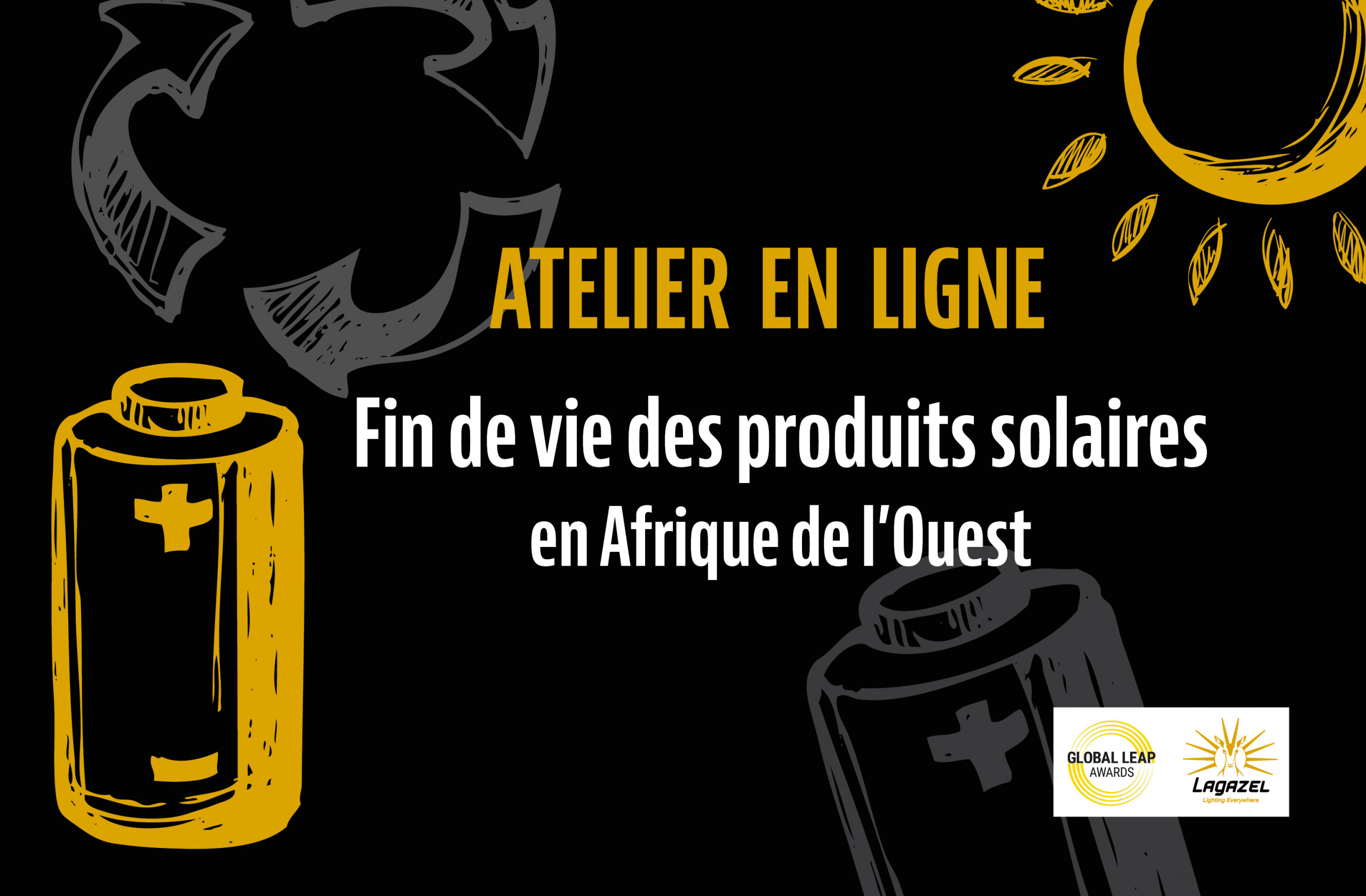On March 10th, Lagazel organized an online workshop on solar e-waste in West Africa. Organized within the framework of the Global Leap Solar E-waste Challenge program, the workshop gathered 15 speakers and a hundred participants around 4 sessions on different topics related to WEEE and solar e-waste management in West Africa: actors, regulations, battery reconditioning, business models,… Find below the replay of the different sessions and the presentations of our speakers, congratulated for the richness of their sharing of experiences.
Opening session
A few introductory words from Issouf Zoungrana, Director General of ANEREE (National Agency for Renewable Energy and Energy Efficiency) in Burkina Faso and Arnaud Chabanne, Director of Lagazel, welcomed the participants and set the context of the workshop, despite some Internet connection difficulties.
Panel 1 : Etat des lieux et acteurs de la gestion des DEEE et déchets solaires en Afrique de l’Ouest
Panel 1: State of the play and players of WEEE and solar e-waste management in West Africa
This first session allowed to share initiatives of actors in the sector of end of life of solar products and WEEE in West Africa. Alassane Sanou from the Association Burkinabè pour la Promotion des Emplois Verts (APBEV) presented an overview of the actors in the sector in Burkina Faso, distinguishing between formal and informal channels. Moussa Bougouma of the Norbert Zongo University in Koudougou completed this overview with a presentation of the Centre of Expertise for the Valorization of Metals (CERVAM) and its activities in the sociological, chemical and electrochemical fields. Another actor in the chain, Victor Vrousos, presented the activities of Weeecycling, a refinery that exports electronic waste to Europe in order to recycle precious metals in a legal and traceable way. Finally, Daniel Hinchliffe from GIZ gave an overview of the German cooperation programs in different West African countries and shared an analysis of the solutions for the treatment of solar product batteries, differentiating between lead and lithium batteries.
Presentations Panel 1: State of the play and players
Replay Panel 1 : State of the play and players
Panel 2 : Environment and regulation of the WEEE and solar e-waste management sector in West Africa
During this second session, Loïc Lonardini from CEA / INES presented different types of abusive tests conducted on lithium-ion cells (overcharge, short-circuit and over-temperature tests) by explaining the causes and consequences of these feared effects. Then Ruweyda Stillhart, from the consulting firm dss+, presented an overview of the legal and regulatory framework in the West African region, with a focus on the most developed legislations in Ghana and Nigeria. Finally, François Ahoti from IEC for Africa presented the work carried out by the international standards body to better produce and manage the end-of-life of batteries.
Presentations Panel 2: Environment and regulation
Replay Panel 2: Environment and regulation
Panel 3 : Feedbacks on battery reconditioning in West Africa
Session 3 started with a presentation by Angel Kirchev from CEA / INES who presented how the diagnosis of recovered lithium-ion cells is performed, an essential step for the manufacturing of secondary battery packs. After a visual inspection, measurements are made with low-cost devices that have been developed and tested in partnership with Lagazel. Roc Sossoukpe, from Engie Energy Access Benin, then presented the activities carried out by the company distributing solar products for the recovery and reconditioning of used solar products, in compliance with safety rules for the handling and storage of batteries. Finally, Lagazel reported on the pilot project carried out over the past two years as part of the Global Leap Solar E-waste Challenge: collection of batteries, implementation of sorting strategies, development and validation of test equipment, interconnection and solderless assembly techniques…
Presentations Panel 3 : Battery reconditionning
Replay Panel 3: Battery reconditionning
Panel 4 : Business models and financing of end-of-life of solar products in West Africa
To conclude the workshop, the 4th session addressed the issues of business models and financing of the end of life of WEEE and solar products. Esmeralda Sindou, Project Manager of the Beyond the Grid for Africa (BGFA) program at REEEP first explained how the fund that finances solar product distributors has integrated the circular economy in its approach, with what challenges and levers of action. Boris de Fauterau, from dss+, then reported on his experience with economic models for WEEE management in developing countries. While the regulatory route is an option that has certain drawbacks, Boris believes that it is possible to optimize the WEEE collection and treatment model in order to achieve an activity that is both ecological and profitable. Finally, Bintou Maiga Bado from PFAN (Private Finance Advisory Network) presented this private finance advisory network, which is established in 40 countries and which accompanies and connects project leaders and investors in all sectors of activity related to renewable energy.
Presentations Panel 4 : Business models and financing
Replay Panel 4 : Business models and financing
Finally, some concluding words were given by Monica Wambui from CLASP, coordinator of the Global Leap Solar E-waste Challenge, and Claire Le Ster from LAGAZEL who, as organizer, thanked all the stakeholders who contributed to the success of the workshop.
Overall, the quality and diversity of the interventions and experience sharing were unanimously congratulated by the participants who encourage to continue the sharing dynamics engaged on the subject.


